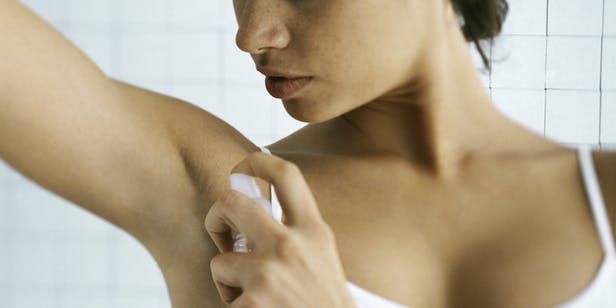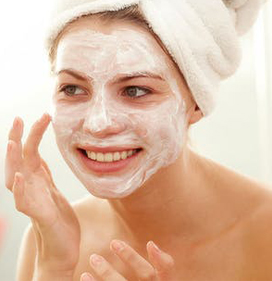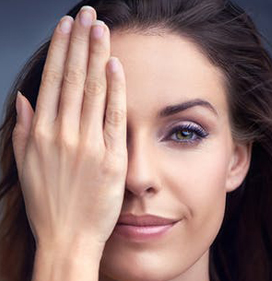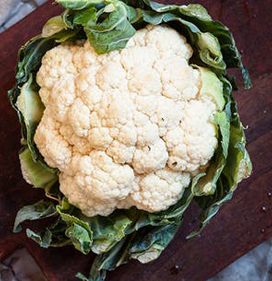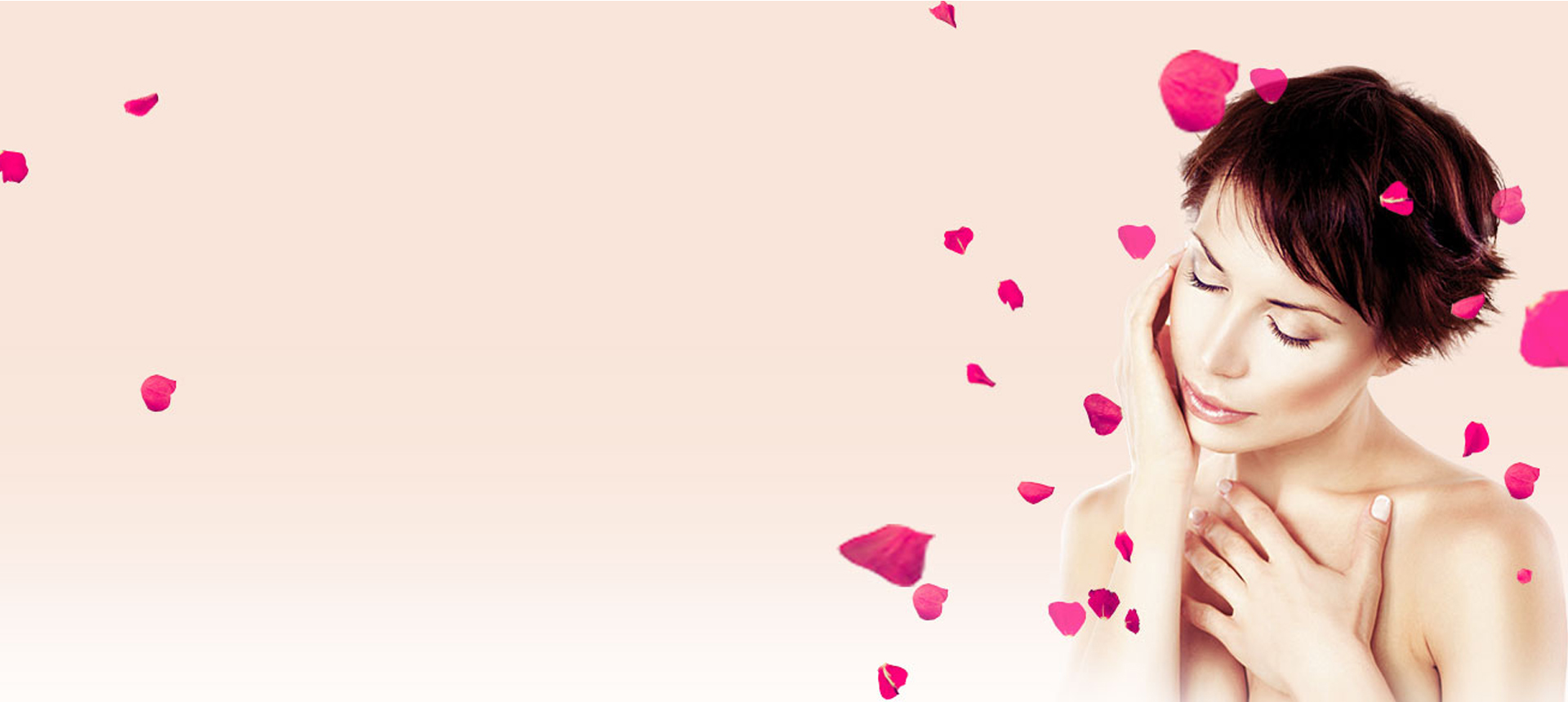
What your face is saying
about your health
When was the last time you looked in the mirror and wondered if your reflection was trying to tell you something? Nutritionist Lucy Stewart says it's time to start, because when things get out of balance, it may literally be written all over your face.
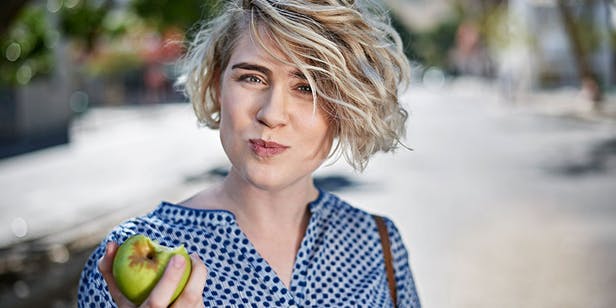
They say the eyes are the window to the soul, but our face is actually one of the biggest indicators of what is going on with our bodies when to comes to nutritional deficiencies, hormonal disruptions and stress. So what is yours trying to tell you? Have a good look in the mirror to see if you are exhibiting one of these common complaints.
Your eyes
Pale skin and pale colouring of the inside of the lower eyelids is a common sign of iron deficiency. Your body needs iron to make haemoglobin in red blood cells, which helps carry oxygen around the body. Low levels of iron make the blood less red, causing the skin to lose its healthy pink colour. If you pull your lower eyelid down, the inside layer should be a vibrant red colour. If it’s a very pale pink or yellow colour, this may indicate that you have iron deficiency.
If you’re getting enough sleep but you’re still seeing dark circles under your eyes, these could be “allergic shiners” and may be a sign of food sensitivity (with cows dairy being the most common). Dark circles under the eyes can also be caused by seasonal allergies, dehydration, iron deficiency and excess salt consumption. Try recording a diet and symptom diary to determine the cause or work with a nutritionist to do an elimination diet to see if symptoms improve.
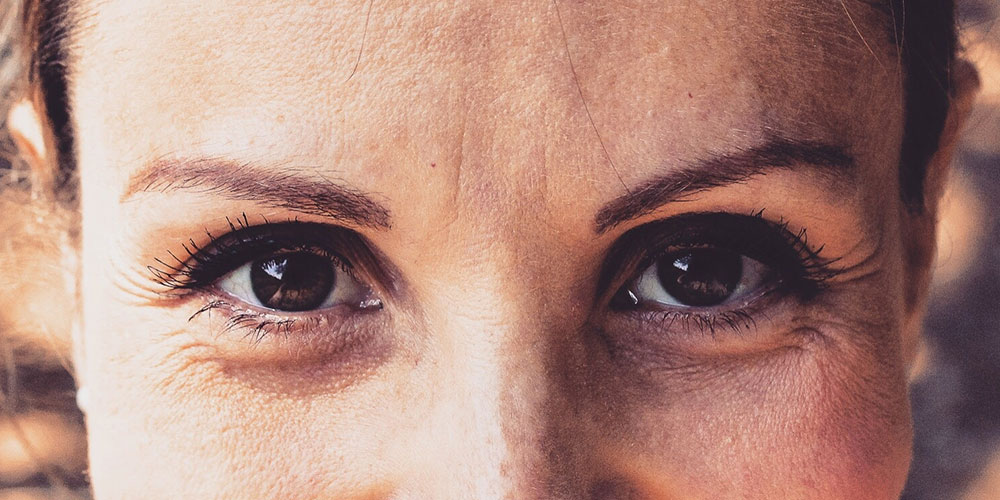
Your eyebrows
Eyebrows that are thinning at the outer edge can be linked to your thyroid and may be a warning sign of an underactive thyroid (Hypothyroidism). Unusually long or wiry eyebrows can indicate exhausted adrenal glands, so it might be time to adopt some lifestyle changes to reduce your stress like yoga or meditation.
Your mouth
Cracks around the edges of the mouth can be a sign on vitamin B2 (riboflavin) deficiency. Riboflavin serves as a coenzyme that works with other B vitamins to release energy from nutrients in your cells, as well as assisting in the growth and production of red blood cells. Healing foods high in riobflavin include red meat, dairy, mushrooms, almonds and dark leafy greens.
It's normal to see a little blood after flossing, but frequent bleeding gums may also be a sign you have a vitamin C deficiency. Vitamin C is needed for growth and repair of tissue throughout the body and a persistent lack of vitamin C in your diet can lead to a condition called Scurvy. Include citrus fruits, kiwi fruit, broccoli, leafy greens and capsicum in your diet to help boost your vitamin C levels.
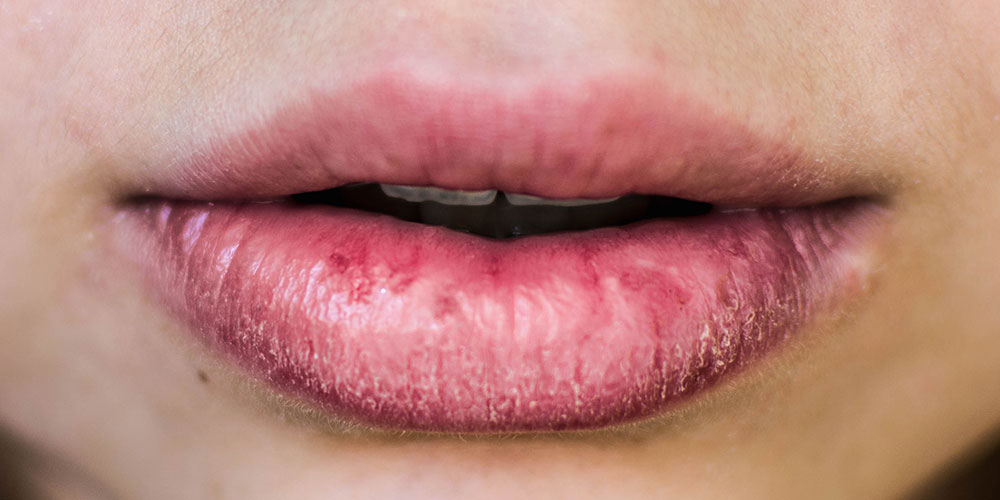
Your skin
Face mapping is an ancient technique used to help diagnose imbalances in the body by studying imbalances in the skin in various parts of the face. My fellow nutritionist and skin therapist, Tess Wright, explains some of the main skin complaints that present with her clients and what might be the underlying cause.
“If acne has always been an issue for you, then take note of where it’s presenting," says Tess. "If it’s on your forehead then it might be something as simple as the products you’re using clogging up the pores, but it might also mean your diet needs a shake-up and is lacking some essential nutrients. If your acne is predominantly on your cheeks, then it could be your digestive system and an indication of a leaky gut. Talk to a nutritionist about ways to improve this or look at following a diet that helps to nourish and repair your gut lining. Acne showing up on your jawline usually indicates hormonal imbalance and further investigation by your healthcare professional may be required, if it’s a concern for you.
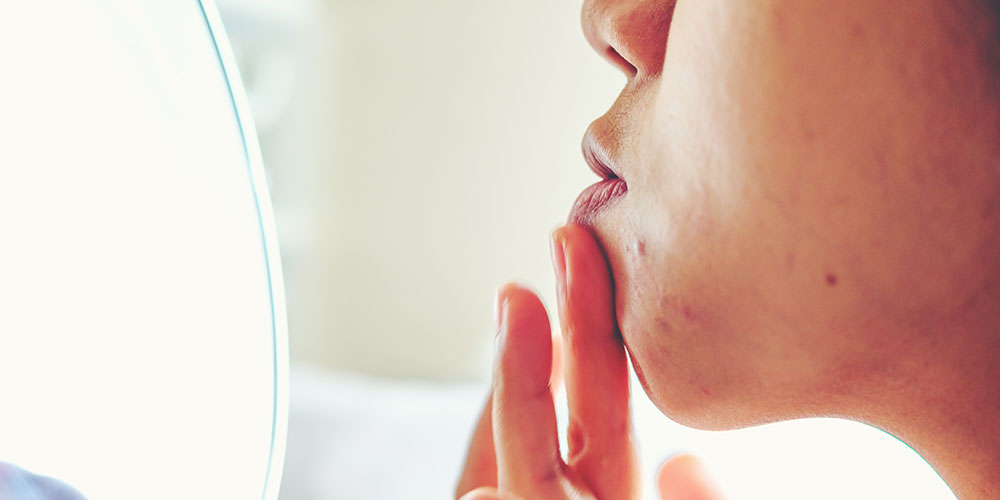
“If you’re noticing excess hair along your jawline, as well as your top lip and other areas of your body, it’s likely your hormones are out of whack and could be an indicator for Poly-cystic Ovarian Syndrome (PCOS). If you’re experiencing other PCOS associated symptoms like jawline acne, absent periods and weight gain it may be time to see your healthcare professional to get your hormone levels checked.
“Skin looking a little dry and flaky? Wondering why those wrinkles have appeared out of nowhere? This is a good sign that your diet is lacking in essential fatty acids (EFAs). To ensure you’re getting enough of these skin-loving healthy fats, make sure you include wild-caught fatty fish, nuts, seeds and avocado in your diet. It’s also worth investing in a quality non-toxic moisturiser – your skin will love you for it!
“Does your skin have a crepe-like appearance? It’s probably crying out for more hydration. An easy way to tell is to pinch your skin and see how quickly it returns to its normal position. Anything more than a few seconds and you need to increase your water intake, and decrease your coffee and alcohol consumption”.
Disclaimer: This article is not intended to diagnose or treat any pre-existing conditions. Always consult with a healthcare professional before taking any supplements.
Related
The $3 pantry product that works wonders on your hair and skin
We're calling it: Bi-carb soda is the unsung hero of your household.
Can this therapy cure your sleepless nights?
Suffering from regularly disrupted sleep? Float Therapy could be your ticket to a peaceful slumber.
6 Simple Steps To Perfect Brows
Thanks to bushy-browed celebrities like Cara Delevingne and an explosion of innovation in products,
6 foods to eat for gorgeous winter skin
Winter has well and truly arrived and for many of us, this means, months of dry and irritated skin.

